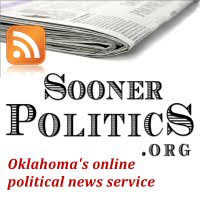There are three veterans in Congress that I want to highlight for you. These individuals have compelling stories to tell about their military experiences that fit right in with the Veterans Day spirit.
Without further ado, here are three American Heroes in Congress.
Much has been said about John McCain and his military experiences. Most of you already know his story. Here it is, taken from Wikipedia (for my sake!).
McCain entered the Navy during the Vietnam War. On July 29, 1967 McCain was injured when a bomb eploded onboard his aircraft carrier, getting struck in the legs and chest by shrapnel. On October 26, 1967, McCain was flying his twenty-third mission, he was shot down over Hanoi. His plane went into a vertical inverted spin. Bailing out upside down at high speed, the force of the ejection fractured McCain's right arm in three places, his left arm, and his right leg at the knee, and knocked him unconscious. McCain nearly drowned after parachuting into a Hanoi Lake. A Vietnamese mob pulled him from the water and attacked him. His left shoulder was crushed with the butt of a rifle and he was bayoneted in his left foot and abdominal area. He was then transported to the "Hanoi Hilton".
McCain was beaten upon entering the "Hanoi Hilton". Only when the North Vietnamese discovered that his father was a top admiral did they give him medical care. McCain gave the North Vietnamese his ship's name, squadron's name, and the attack's intended target. Further coerced to give future targets, he named cities that had already been bombed, and responding to demands for the names of his squadron's members, he supplied instead the names of the Green Bay Packers' offensive line. McCain spent six weeks in the hospital, receiving marginal care in a dirty, wet environment. A prolonged attempt to set the fractures on his right arm, done without anesthetic, was unsuccessful; he received an operation on his broken leg but no treatment for his broken left arm.
Now having lost fifty pounds, in a chest cast, covered in grime and eyes full of fever, and with his hair turned white, in early December 1967 McCain was sent to a prisoner-of-war camp on the outskirts of Hanoi nicknamed "the Plantation". In March 1968, McCain was put into solitary confinement, where he remained for two years. In mid-June, Major Bai, commander of the North Vietnamese prison camp system, offered McCain a chance to return home early. The North Vietnamese wanted to score a worldwide propaganda coup by appearing merciful, and also wanted to show other POWs that members of the elite like McCain were willing to be treated preferentially. McCain turned down the offer of release, due to the POWs' "first in, first out" interpretation of the U.S. Code of Conduct: he would only accept the offer if every man captured before him was released as well.
In late August 1968, a program of vigorous torture methods began on McCain. The North Vietnamese used rope bindings to put him into prolonged, painful positions and severely beat him every two hours, all while he was suffering from dysentery. His right leg was reinjured, his ribs were cracked, some teeth were broken at the gumline, and his left arm was re-fractured. After four days of this, McCain signed and taped an anti-American propaganda "confession". He used stilted Communist jargon and ungrammatical language to signal that the statement was forced. McCain was haunted then and since with the belief that he had dishonored his country, his family, his comrades and himself by his statement, but as he later wrote, "I had learned what we all learned over there: Every man has his breaking point. I had reached mine." Two weeks later his captors tried to force him to sign a second statement; his will to resist restored, he refused. He sometimes received two to three beatings per week because of his continued resistance; the sustained mistreatment went on for over a year. McCain refused to meet with various anti-Vietnam War peace groups coming to Hanoi, not wanting to give either them or the North Vietnamese a propaganda victory based on his connection to his father.
Altogether, McCain was held as a prisoner of war in North Vietnam for five and a half years, nearly five of them after his refusal to accept the out-of-sequence repatriation offer. His wartime injuries left him permanently incapable of raising either arm more than 80 degrees . For his actions as a POW, McCain was awarded the Silver Star, the Legion of Merit, three more instances of the Bronze Star, another instance of the Navy Commendation Medal, and the Purple Heart.
Whether you agree with his politics or not, John McCain is an American hero.
Sam Johnson is the least-well known of the three gentlemen that I am highlighting, but his story is every bit as real as the others. The following is taken from his congressional website (edited for brevity).
Johnson flew 62 combat missions during the Korean War, scoring one MiG fighter kill, one probable and one damaged. After Korea, he flew the solo and slot positions for the world-renowned Air Force Thunderbirds precision flying demonstration team in the F-100 Super Sabre.
In the Vietnam War during his second tour of duty, Johnson flew his 25th combat mission on April 16, 1966. Shot down at dusk over North Vietnam, Johnson suffered a broken right arm, dislocated left shoulder and a broken back. It was these injuries that the enemy captors would use in their constant efforts to glean information from Johnson.
Johnson spent nearly seven years as a prisoner of war, 42 months in solitary confinement. Forced into solitary when his captors labeled him a “die-hard,” Johnson committed 374 names to memory from tapping a special code on the prison wall. “We were all trying to memorize names in case anybody got out,” Johnson remembers.
While held in the infamous Hanoi Hilton, Johnson spent 72 days in leg stocks. A day after that torture ended, his captors forced him into leg irons for 2 ½ years. Weighing 200 lbs when shot down, an emaciated Johnson got down to an estimated 120 lbs while barely surviving on the occasional “meal” of weeds from the river, pig fat, white rice, or pumpkin soup.
Fellow POW Capt. James Mulligan, USN (Ret.) recalled the day Johnson was allowed to return to a joint cell. He walked into the room with the two other detained American officers, “stood at attention with tears in his eyes, and said simply, ‘Lieutenant Colonel Sam Johnson reporting for duty, sir’…after he had not talked to or directly been with an American for three and a half years.”
Whether you agree with his politics or not, Sam Johnson is an American hero.
As you can tell from the above picture, Sen. Inouye does not have a right arm.
You see, Inouye was a soldier in the all Japanese-American 442nd Regimental Combat Team, the most highly-decorated unit in Army history. Since Americans of Japanese descent were suspected of Axis sympathies (many were held in internment camps), members of the 442nd often volunteered for suicide missions in the European theater to prove how American they were. The following is again from Wikipedia.
In 1943, when the U.S. Army dropped its ban on Japanese-Americans, Inouye curtailed his premedical studies at the University of Hawaii and enlisted in the Army. Inouye was promoted to the rank of sergeant within his first year, and he was given the role of platoon leader. He served in Italy in 1944 during the Rome-Arno Campaign before he was shifted to the Vosges Mountains region of France, where he spent two weeks searching for the Lost Battalion, a Texas battalion that was surrounded by German forces. He was promoted to the rank of second lieutenant for his actions there. At one point while leading an attack a shot struck him in the chest directly above his heart, but the bullet was stopped by the two silver dollars he happened to have stacked in his shirt pocket. He continued to carry the coins throughout the war in his shirt pocket as good luck charms.
On April 21, 1945, Inouye was grievously wounded while leading an assault on a heavily-defended ridge called near Terenzo called Colle Musatello. The ridge served as a strongpoint along the strip of German fortifications known as the Gothic Line, which represented the last and most dogged line of German defensive works in Italy. As he led his platoon in a flanking maneuver, three German machine guns opened fire from covered positions just 40 yards away, pinning his men to the ground. Inouye stood up to attack and was shot in the stomach; ignoring his wound, he proceeded to attack and destroy the first machine gun nest with hand grenades and fire from his M1 Thompson submachine gun. After being informed of the severity of his wound by his platoon sergeant, he refused treatment and rallied his men for an attack on the second machine gun position, which he also successfully destroyed before collapsing from blood loss.
As his squad distracted the third machine gunner, Inouye crawled toward the final bunker, eventually drawing within 10 yards. As he raised himself up and cocked his arm to throw his last grenade into the fighting position, a German inside fired a rifle grenade that struck him on the right elbow, severing most of his arm and leaving the primed grenade reflexively "clenched in a fist that suddenly didn't belong to me anymore". Inouye's horrified soldiers moved to his aid, but he shouted for them to keep back out of fear his severed fist would involuntarily relax and drop the grenade. As the German inside the bunker reloaded his rifle, Inouye managed to successfully pry the live grenade from his useless right hand and transfer it to his left. As the German aimed his rifle to finish him off, Inouye managed at last to toss the grenade off-hand into the bunker and destroy it. He stumbled to his feet and continued forward, silencing the last German resistance with a one-handed burst from his Thompson before being wounded in the leg and tumbling unconscious to the bottom of the ridge. When he awoke to see the concerned men of his platoon hovering over him, his only comment before being carried away was to gruffly order them return to their positions, since, as he pointed out, "nobody had called off the war".
The remainder of Inouye's mutilated right arm was later amputated at a field hospital without proper anesthesia, as he had been given too much morphine at an aid station and it was feared any more would lower his blood pressure enough to kill him. Inouye was initially awarded the Distinguished Service Cross for his bravery in this action, with the award later being upgraded to the Medal of Honor (alongside 21 other Nisei servicemen who served in the 442nd Regimental Combat Team and were believed to have been denied proper recognition of their bravery due to their race).
While recovering from WWII wounds and the amputation of his right forearm from the grenade wound (mentioned above) at Percy Jones Army Hospital, Inouye met future Republican presidential candidate Bob Dole, then a fellow patient. Dole mentioned to Inouye that after the war he planned to go to Congress; Inouye beat him there by a few years. The two have remained lifelong friends. In 2003, the hospital was renamed the Hart-Dole-Inouye Federal Center in honor of the two WWII veterans and another U.S. Senator and fellow WWII veteran who had stayed in the hospital, Philip Hart.
Whether you agree with his politics or not, Daniel Inouye is an American hero.
And then finally, I end with this poem, which has been passed around so much that nobody really knows who the author is (often attributed to one Father Dennis Edward O'Brien, of the USMC):
It is the soldier, not the reporter,
who has given us freedom of the press.
It is the soldier, not the poet,
who has given us freedom of speech.
It is the soldier, not the campus organizer,
who has given us the freedom to demonstrate.
It is the soldier, not the lawyer,
who has given us the right to a fair trial.
It is the soldier,
who salutes the flag,
who serves under the flag,
and whose coffin is draped by the flag,
who allows the protester to burn the flag.
who has given us freedom of the press.
It is the soldier, not the poet,
who has given us freedom of speech.
It is the soldier, not the campus organizer,
who has given us the freedom to demonstrate.
It is the soldier, not the lawyer,
who has given us the right to a fair trial.
It is the soldier,
who salutes the flag,
who serves under the flag,
and whose coffin is draped by the flag,
who allows the protester to burn the flag.












0 comments:
Post a Comment
PLEASE INCLUDE YOUR NAME when commenting. Anonymous comments may be rejected if NOT accompanied by a name.
Comments are welcome, but remember - commenting on my blog is a privilege. Do not abuse that privilege, or your comment will be deleted.
Thank you for joining in the discussion at MuskogeePolitico.com! Your opinion is appreciated!